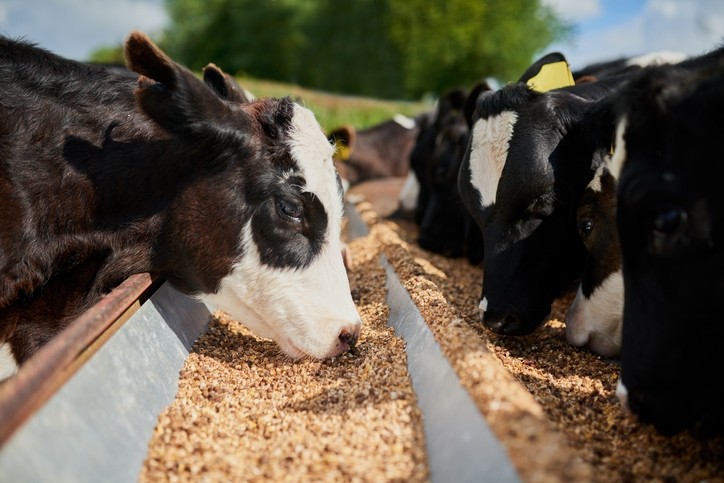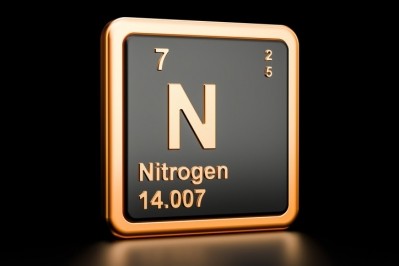Ajinomoto looks to tackle sustainability, feed efficiency challenges on EU dairy farms

The developer said the product, branded as AjiPro-L, has dual protection for better stability and is aimed at increasing animal productivity, improving Income Over Feed Cost (IOFC) and boosting efficiency in lower protein diets with less nitrogen excretion.
AjiPro-L Generation 1 was launched in US in 2011 with an improved version released in 2016. “The total market for rumen protected lysine was 2,000 tons in the US in 2011, today it is 8,000 tons, and out of this, AjiPro-L accounts for 6,000 tons. The product, in fact, led the market development in the US,” said Matthieu Rolland, ruminant development manager, Ajinomoto Animal Nutrition, EMEA.
To appeal to the European dairy sector, the formulation needed to contain non-GMO materials. But the selection process around those inputs was quite challenging, with the product development period lasting two years.
“The oil we use for protection [purposes] in the US product can come from GMO soybeans but we wanted to find an alternative source for the European market - non-GMO soybean and oil,” Rolland told us.
He said the R&D process to get the formulation of the European product correct was quite convoluted:
“When we first started to use non-GMO oil, we did not achieve the same level of protection and digestibility. It was surprising; we had to go back to the Japanese lab [on this]. It wasn’t really due to the fact the raw materials were non-GMO or GMO – it was more that, since GMO has been on the market, seed suppliers have kept doing research on the products they sold in large volumes, i.e. GMO products. That meant non-GMO varieties were a bit older, in terms of genetic selection, their fatty acid profile was not exactly the same as that of the current GMO varieties. So we had to find a way to standardize the fatty acid profile of the hydrogenated soy oil we used for protection."
The company then initiated lab tests at small volumes, eventually scaling up to commercial levels. "The first industrial batch was produced in April last year, and we achieved the same characteristics as the US product.”
Nitrogen excretion reduction
It also ran tests on the non-GMO formulation in European research centers, to ensure it worked with EU dairy cows diets:
“First, we tested the US formulation in EU dairy cows to see if we could observe an animal response to lysine, and, then, last year, we did two different types of trials on the EU product with the Belgian research institute, ILVO.”
One of those trials was run just to validate the product characteristics, evaluating protection and digestibility parameters.
“Then another team at ILVO used AjiPro-L to conduct a low crude protein trial in dairy cows, [a study that had been requested by the Flemish government] to evaluate its potential to reduce nitrogen excretion. The outcome was positive. They dropped the crude protein level of the diet from 17% to 15%, and when they compensated with protected rumen amino acids they were able to keep the same performance and reduce nitrogen excretion by 12%.”
That was the first investigation linking the product to such sustainability related gains. Rolland's US colleagues had mainly done trials around productivity and feed efficiency in relation to AjiPro-L.
“In Europe, there is a higher demand to manage dairy production footprint, and amino acids are a way to address this.”
Another European based trial has got underway, he said, trying to reduce crude protein levels even further, aided by different rumen protected amino acids. “In some areas of the US, however, this is also becoming an issue. There are hotspots in California, for example, where there are challenges related to nitrogen release into the groundwater.”
The product can be used in feed formulation, but can’t be pelletized.
“As a final validation, we also conducted tests on the EU formulation in commercial farms in the UK, France, Spain, Italy, Germany and Poland. We selected a wide number of farms in several countries to have a view of different feeding systems and ration profiles, because in the south of Europe, the diets tend to be closer to US dairy cow diets, but as you to go north, you get lots of grass. But we also wanted to evaluate the product depending on the lactation stage so as to be able to provide good guidelines for implementation.”
The company observed different responses depending on the lactation stage. With 45g AjiPro-L on-top, milk production increased by 1.5 to 2kg for groups of cows below 120 days in milk and by 1kg milk in herds with average 160 days in milk. The energy level of the diet also has an impact on the magnitude of the response, he said.
Similar improvements can be achieved with a smaller investment if AjiPro-L is not used on-top but together with a reformulate of the ration, said the company.
“Amino acid nutrition in dairy is quite new. That is why we need to do a lot of tests to provide some recommendations and provide the market with additional knowledge. We are starting to meet with feed millers now in different European markets," added Rolland.















